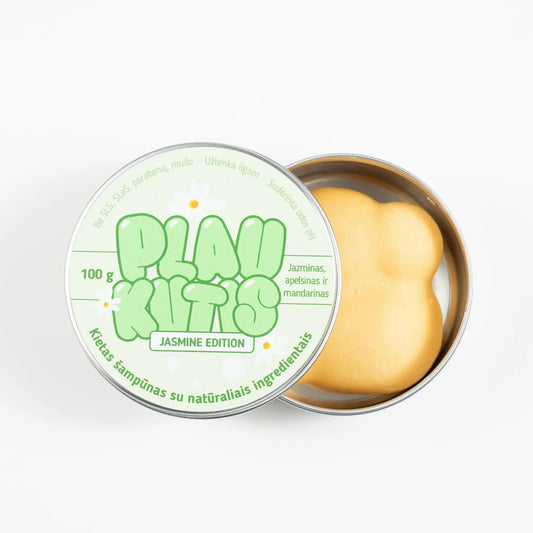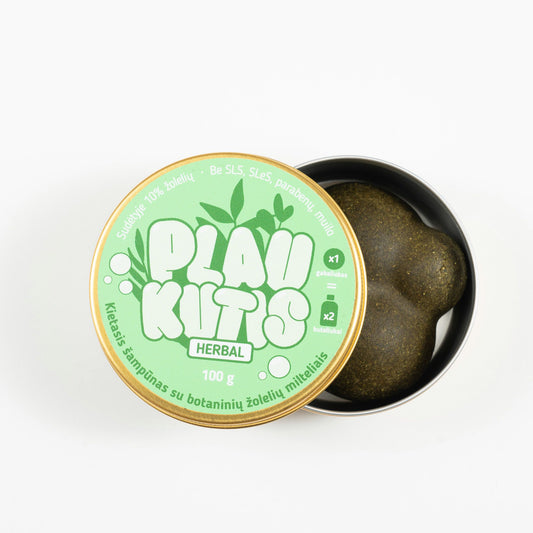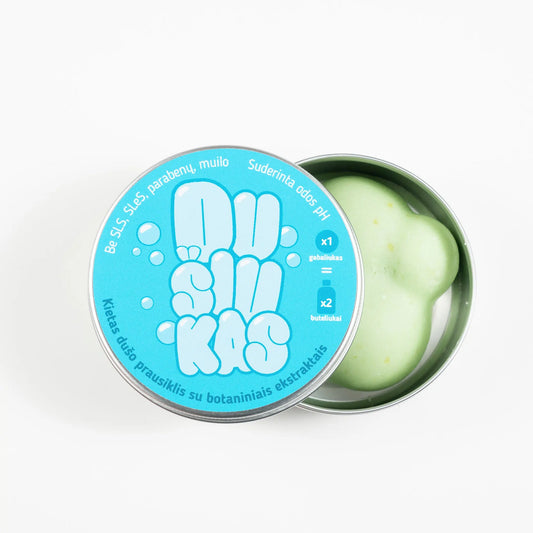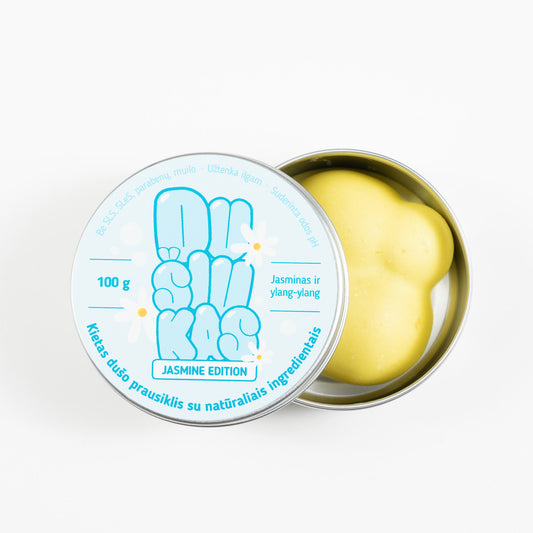Sulfates, such as sodium lauryl sulfate (SLS) and sodium laureth sulfate (SLES), are widely known for their deep cleansing properties and ability to create a rich lather. However, sulfates are not for everyone. For many, especially those with sensitive scalps or dry hair, sulfates can be too harsh. Studies show that 25-30% of individuals experience some degree of irritation or dryness from products containing sulfates.
As more consumers seek out more natural and less irritating products, the demand for sulfate-free alternatives is growing. The global sulfate-free shampoo market is projected to grow at a compound annual growth rate of 8.5% to reach $6.7 billion by 2027. In this article, we’ll take a look at gentler sulfate alternatives, such as cocamidopropyl betaine, decyl glucoside, and other eco-friendly foaming agents. These alternatives cleanse effectively but are gentler on your scalp and hair.
Cocamidopropyl Betaine: Gentle Hair Mousse
Cocamidopropyl betaine is one of the most popular sulfate-free shampoo alternatives, derived from coconut oil. It is an amphoteric surfactant, meaning it can act as both a cleanser and a gentle conditioner. Due to its gentle cleansing properties, this ingredient is often used in shampoos, shower gels, and facial washes.

How does cocamidopropyl betaine work?
Cocamidopropyl betaine effectively cleanses while preserving the hair's natural moisture balance. Unlike sulfates, which aggressively strip away oils, cocamidopropyl betaine cleanses without drying out the scalp. A 2015 study published in the Journal of Cosmetic Science found that formulas containing cocamidopropyl betaine reduced scalp irritation by as much as 42% compared to sulfates.
Another study showed that cocamidopropyl betaine can increase the gentleness of other foams, reducing the likelihood of irritation by up to 25% . This ingredient is perfect for gentle shampoo formulas, improving their cleansing properties without causing unwanted scalp damage.
Benefits for sensitive scalp and thin hair
If you experience redness, flaking, or itching after using sulfate-based shampoos, cocamidopropyl betaine may be your savior. This ingredient has been shown to reduce skin irritation by 30% in individuals suffering from eczema and dermatitis. It's also great for fine or thinning hair , as its formula is lightweight and won't weigh your hair down.
Cocamidopropyl Betaine provides a deep cleanse while maintaining hair volume. Because it is derived from coconut oil, it also has some conditioning properties, making it a great choice for those looking for a shampoo that provides hydration and gentle cleansing.

Popular sulfate-free shampoos with cocamidopropyl betaine
- Aveeno Pure Renewal Shampoo : This sulfate-free shampoo, containing cocamidopropyl betaine and seaweed extract, restores moisture balance to dry hair.
- SheaMoisture Coconut & Hibiscus Curl & Shine Shampoo : Ideal for curly hair, this shampoo gently cleanses and helps maintain hair's natural moisture and shape.
- Bioderma Node DS+ Anti-Dandruff Shampoo : This shampoo, designed for sensitive scalps, uses cocamidopropyl betaine to reduce irritation and flaking.
Decylglucoside: a natural substitute
Another popular sulfate-free foaming agent is decyl glucoside . It is derived from plant-based materials, such as coconut or palm oils, and glucose from corn, making it a natural alternative to synthetic foaming agents.

Natural origin of decylglucoside
Decyl glucoside is produced by reacting glucose with decyl alcohol, both of which are renewable resources. Due to its natural origin, it is considered one of the safest foaming agents. According to the Environmental Working Group (EWG) , decyl glucoside is rated 1 , meaning it poses very low risk of irritation or environmental damage. This rating is supported by research showing that decyl glucoside is 100% biodegradable , making it an eco-friendly choice for environmentally conscious consumers.
Benefits of organic hair care
More and more consumers are choosing hair care products that align with their values. A 2021 Nielsen report found that 73% of global consumers are willing to pay more for sustainable products. Decyl glucoside is often used in sulfate-free shampoos that are advertised as natural and organic , due to its gentleness and low environmental impact.
For those looking to reduce their carbon footprint, decyl glucoside is a safe, gentle and eco-friendly alternative. It is suitable for all hair types , especially dry or damaged hair, as it does not strip the hair of its natural oils. In addition, decyl glucoside helps maintain a pH balance that is close to the pH of the skin, which can therefore improve the overall health of the scalp.

Suitable hair types and commonly used formulas with decyl glucoside
Decyl glucoside is ideal for individuals with sensitive skin , dry hair types or those prone to allergies. It is often used in baby care products and baby shampoos due to its extreme gentleness.
- Alba Botanica Hawaiian Coconut Milk Shampoo : This sulfate-free shampoo, containing decyl glucoside, gently cleanses hair while moisturizing it with coconut milk.
- Acure Daily Clarifying Shampoo : A lightweight shampoo that uses decyl glucoside, making it perfect for daily use without drying out your hair.
- Weleda Oat Replenishing Shampoo : This shampoo with decyl glucoside and oat extract provides moisturizing cleansing for dry and damaged hair.
Other gentle, sulfate-free foams
In addition to cocamidopropyl betaine and decyl glucoside, there are other alternatives that provide gentle yet effective cleansing without causing irritation or dryness.
Sodium Lauryl Sulfoacetate (SLSA)
Despite its sulfate-like name, sodium lauryl sulfoacetate (SLSA) is not a sulfate. It’s derived from coconut and palm oils and is classified as a mild emollient. According to a 2018 study published in the International Journal of Trichology , SLSA is 40% less irritating than sulfates, making it ideal for sensitive scalps and skin.
SLSA also creates a rich lather similar to sulfates, making it a great choice for those who still want the lather effect but want a gentler cleanser. It is often found in gentle body washes, facial cleansers, and shampoos designed to reduce irritation.

Lauryl glucoside
Lauryl glucoside is another plant-based surfactant derived from coconut or palm oil. Similar to decyl glucoside, lauryl glucoside is a natural, non-ionic surfactant, meaning it is not likely to cause irritation.
A 2020 study found that lauryl glucoside reduced skin irritation by 25-35% compared to traditional sulfate-based cleansers. It's commonly used in products for dry, curly, or chemically damaged hair because it cleanses without stripping away too much moisture.
How to choose the right sulfate-free mousse for your hair type
When choosing the right sulfate alternative, it's important to consider your hair type, scalp sensitivity, and environmental considerations. Here are some tips to help you make the best decision:
- For sensitive scalps : Look for shampoos with cocamidopropyl betaine or lauryl glucoside, as these are some of the gentlest options.
- For environmentalists : Choose decyl glucoside or SLSA, which are plant-based, biodegradable, and eco-friendly.
- For fine hair : Cocamidopropyl betaine is lightweight and cleanses without leaving a heavy feel, making it perfect for maintaining hair volume.
- For curly or dry hair : Choose shampoos with lauryl glucoside or decyl glucoside, as they help retain moisture and reduce frizz.

Myth busting and interesting facts
- Myth: “Sulfate-free shampoos don’t lather.”
Fact: Foaming agents like SLSA and cocamidopropyl betaine create a rich lather similar to sulfates, but are much gentler on the scalp. - Myth: “Sulfate-free shampoos don’t clean as well.”
Fact: Alternatives to sulfates, such as decyl glucoside and lauryl glucoside, are just as effective at removing dirt and oil without drying out your hair. - Fun fact: Coconut-derived foaming agents, such as cocamidopropyl betaine, are biodegradable and break down in nature within 28 days.
- Interesting fact: Decyl glucoside is often used not only in hair care, but also in organic dishwashing detergents and household cleaning products due to its mildness and non-toxicity.
- Myth: “All sulfate-free shampoos are more expensive.”
Fact: While some sulfate-free shampoos may cost more, many affordable options use cocamidopropyl betaine and decyl glucoside without compromising on quality.
Practical tips or solutions
- Transition gradually : If you're switching from sulfate-based shampoos to sulfate-free alternatives, start by using a sulfate-free shampoo twice a week to allow your scalp to adjust.
- Cleanse periodically : Even sulfate-free shampoos can build up residue over time. Use a clarifying shampoo, such as one with SLSA, once a month to remove product buildup.
- Use conditioner after washing : Always use a good conditioner to lock in moisture, especially if you have dry or curly hair.
- Read the labels : Not all sulfate-free shampoos are created equal. Look for products that contain cocamidopropyl betaine, decyl glucoside, or lauryl glucoside to ensure gentle yet effective cleansing.
- Use the right amount : You don't need a lot of sulfate-free shampoo to wash your hair. A pea-sized amount is usually enough for short to medium-length hair.

Frequently asked questions
Q: Do sulfate-free shampoos lather well?
A: Yes, foaming agents like SLSA and cocamidopropyl betaine create a rich lather similar to sulfates, but are much gentler.
Q: Are sulfate-free shampoos suitable for color-treated hair?
A: Yes, indeed. Sulfate-free shampoos, especially those with decyl glucoside, help maintain color by not stripping away dye.
Q: Can sulfate-free shampoos reduce scalp irritation?
A: Yes, many gentle foams, such as lauryl glucoside, are much gentler and reduce the risk of irritation by as much as 25-40% .
Q: How often should you wash your hair with sulfate-free shampoo?
A: Sulfate-free shampoos are gentle enough for daily use, but 2-3 times a week is sufficient for most hair types.
Q: Are sulfate-free shampoos more environmentally friendly?
A: Yes, especially those that contain biodegradable foaming agents such as decyl glucoside and SLSA.

Conclusion: How to Choose the Best Alternative to Sulfates for Your Hair
Choosing a sulfate-free shampoo doesn't mean you have to sacrifice cleaning power. With foaming agents like cocamidopropyl betaine, decyl glucoside, and lauryl glucoside, you can enjoy clean, healthy hair without the harsh effects of sulfates. Whether you're looking for a gentle cleanser for sensitive scalps or a natural, eco-friendly alternative, sulfate-free shampoos offer a versatile solution for all hair types. Change your habits today for healthier hair and a happier scalp.













